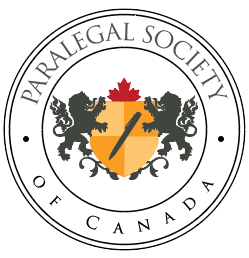The regulatory scheme set out in the Law Society’s By-Law 4 permits paralegals to practise in what were already permitted areas of practice. Subsection 6 (2) authorizes licensed paralegals to represent someone:
- in Small Claims Court
- in the Ontario Court of Justice under the Provincial Offences Act
- on summary conviction offences where the maximum penalty does not exceed six months’ imprisonment and /or a $5,000 fine
- before administrative tribunals, including the Financial Services Commission of Ontario.
A person with a paralegal licence can do the following in the course of representing a client in any of the above-mentioned proceedings:
- give legal advice concerning legal interests, rights or responsibilities with respect to a proceeding or the subject matter of a proceeding
- draft or assist with drafting documents for use in a proceeding
- negotiate on behalf of a person who is a party to a proceeding.
Paralegals are not permitted to appear in Family Court and may not provide legal services that only a lawyer may provide, such as drafting wills or handling real estate transactions or estates.
Who needs a licence?
Anyone in Ontario who provides legal services requires a licence, unless they are exempted under the Law Society Act or section 30 of By-Law 4.
Do individuals who work for a lawyer require a licence?
People whose work is supervised by a lawyer are governed by Section 6.1 of the lawyers’ Rules of Professional Conduct. Individuals who prepare documents under the supervision of a lawyer and who are not appearing in front of a court or tribunal do not require a licence. Individuals in this category include law clerks in law firms and independent contractors, such as document preparers and title searchers whose only clients are lawyers.
Non-lawyers appearing in court or before a tribunal require a licence, even if they are supervised by a lawyer, unless they are appearing on behalf of a lawyer on a scheduling or other related routine administrative matter per By-Law 7.1. s. 5 (1)(b)
Becoming licensed
When did the Law Society begin issuing licences?
The Law Society began issuing the first paralegal licences to grandparent applicants who fulfilled all the necessary licensing requirements (including insurance) in April 2008.
How do I become a licensed paralegal?
For Information of how to become a Licensed Paralegal, please visit our Become a Paralegal page.
New paralegal applicants are not able to provide legal services until they are licensed, but are eligible to apply to become licensed as paralegals if they have graduated from a Law Society accredited paralegal services program.
To date, the Law Society has accredited these college programs.
What if I attend or have graduated from a non-accredited legal services program that does not meet all of the Law Society’s accreditation requirements and I did not apply by June 30, 2010?
You may contact a College from the list of accredited programs to find out the options that are available to you. A Prior Learning Assessment, Advanced Standing, or upgrades to your current education, are options to explore and consider discussing with the College. Note: Some of these options may include an additional charge by the college, especially if you are required to complete additional courses to upgrade your program. All applicants must graduate or be graduating from a College approved by the Ministry of Training Colleges and Universities and a Law Society accredited program to be eligible to apply to the Paralegal Licensing Process.
